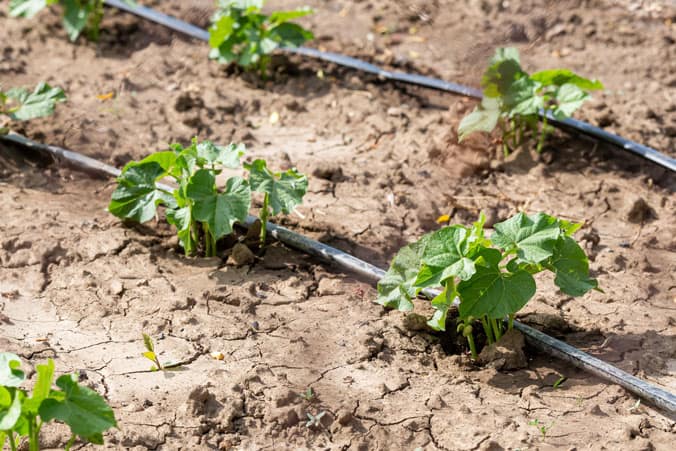The environment in which a plant grows can greatly influence the harvest. Any environmental factor that is less than ideal can limit crop quality and yield. Because of the powerful seed technology on the market, most of the problems facing farmers today are the result of environmental stress, according to Oregon State University Extension researchers. In this sense, understanding how to better manage environmental conditions can reduce overall plant stress and ensure a better harvest at the end of the crop.
What external factors affect plant growth?
Most of the external agents that affect plant growth and hormones are unpredictable and variable. Factors such as weather, soil conditions and pest pressure can create environments that growers must adapt to throughout the growing season to protect the yield and overall quality of their crops.
One example is ambient light that influences plant growth. The more light a crop receives, the more food it can produce through photosynthesis. It is important to take into account the quality and duration of light, and that the needs vary from crop to crop. And while we cannot control natural light, we can predict sunrise and sunset patterns from weather forecasts, making it easier to plan the correct exposure of crops to the light they need.
However, other environmental factors are not as predictable or as easy to adapt to the specific needs of crops. Farmers must learn to manage them to produce the best fruits, vegetables and other crops on which the world depends.
Key elements that can affect plant health are:
- Temperature: Most plant processes are a reaction to temperature—from transpiration to germination, and even flowering. Temperatures that are too warm or too cool can impact the speed and ability for a crop to grow.
- Water: From photosynthesis to the firmness of a plant’s tissue, water plays a critical role in a plant’s health. It also helps nutrients and carbohydrates move through the plant. Too much or too little water can trigger hormones or other internal plant mechanisms that try to support a plant’s survival, but too much or too little water also can reduce or eliminate the plant to produce the desired outcome for a producer.
- Soil: The type of elements within the organic matter, including living microorganisms that support various stages of decomposition all play a role in the nutrient availability on which crops depend.
- Nutrition: Many external factors can reduce or stop a plant’s sugar production in leaves, which lowers the plant’s ability to absorb essential nutrients. Low light and extreme temperatures can lead to nutrient deficiency, greatly impacting the quality or yield potential of a crop.
Tips for Mitigating Crop Stressors
Multiple environmental factors can come into play and negatively impact crop performance at once.
For example, several independent research studies have shown that increased temperature and drought can reduce crop yields by as much as 50 percent.
Since growers can’t control these stressors, they must look at internal support they can offer the plant, focusing on improving productivity despite uncontrollable factors.
Balancing a plant’s hormones can help support optimum growth when weather or stress conditions cause hormone imbalance. And this can be done at several key developmental stages to successfully support the plant’s ability to withstand the stresses that limit optimal growth.
What Are Key Plant Hormones?
There are five key plant hormones:
- Cytokinin – Primarily produced in root tip tissue, this hormone stimulates shoot formation and branching.
- Auxin – This hormone activates and directs new cell division and food movement in plants. It can concentrate in leaf tissue in greater amounts than root tips.
- Gibberellic Acid – Plants produce this hormone to encourage cells to grow and elongate. It’s stored in the nodes.
- Ethylene – This hormone is a gas produced in the cells that help regulate the movement of hormones. In normal levels, it helps move auxin from various cells in the plant, signals reproductive maturity, initiates flowering and fruiting, and increases as the plant august to initiate ripening. In stressful conditions, ethylene signals the plant to synthesize protectant proteins to overcome stress. In excess stress, this hormone can cause premature senescence and cell death.
- Abscisic Acid – Made primarily in roots, this hormone is responsible for cell maturity and the termination of cell growth. Abscisic acid promotes ripening and seed dormancy.
Why Are Plant Hormones Important?
Growers who understand how plant hormones work and how they can manipulate them to better withstand external stressors can overcome many factors that limit plant growth cycles and production.
Nutrients help synthesize plant hormones. The right nutrient and hormone balance can create a more consistent and optimized response to unpredictable and variable environmental conditions.
Looking for solutions to help you improve the hormonal and nutritional balance to enhance the growth of your crop? Stoller’s plant performance products help maintain optimal growth even in adverse weather conditions. Contact us for more information on how we can help you increase the yield and quality of your crops

